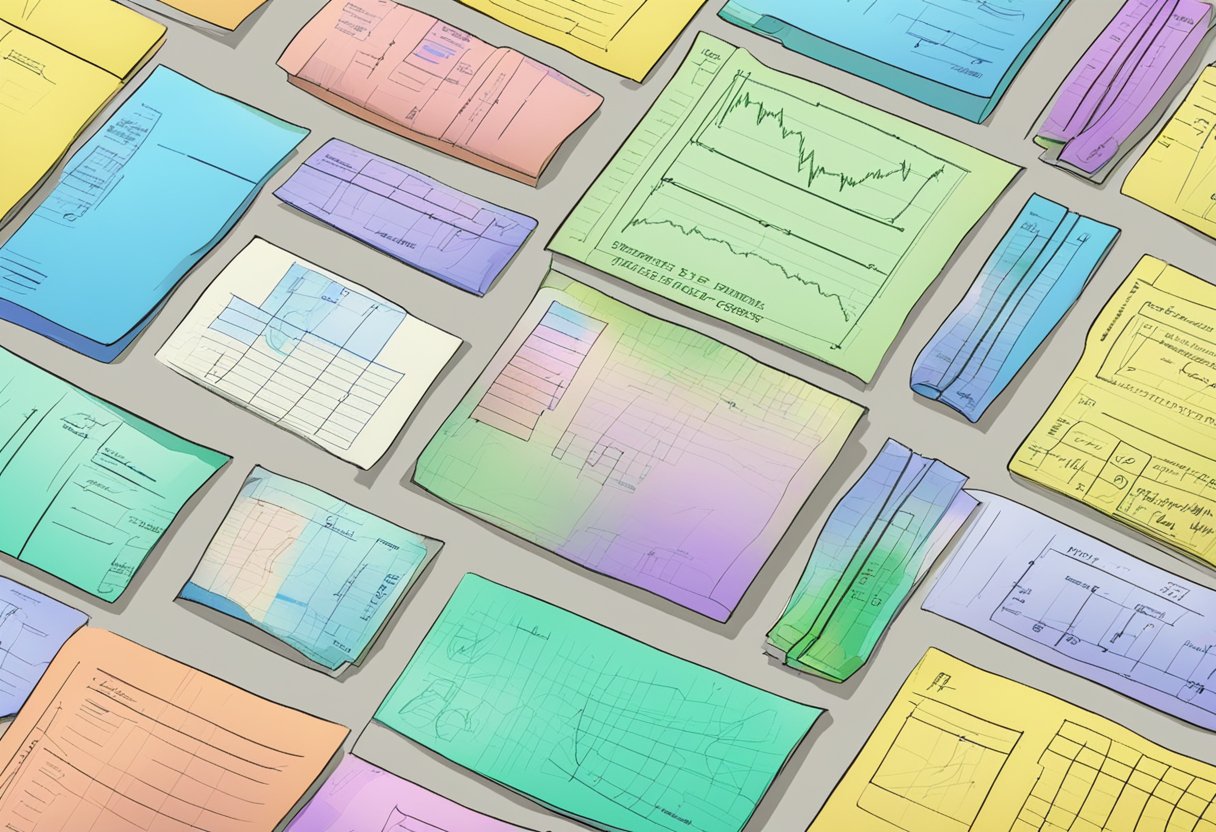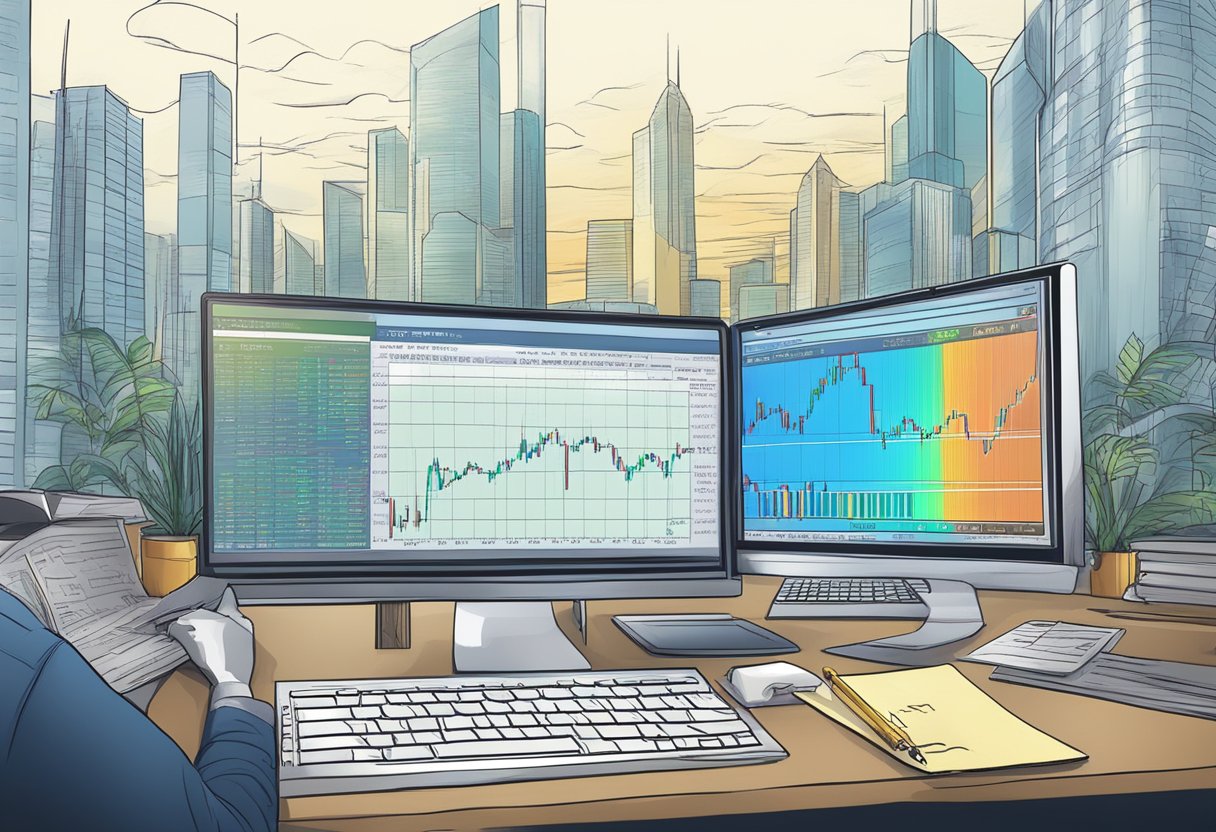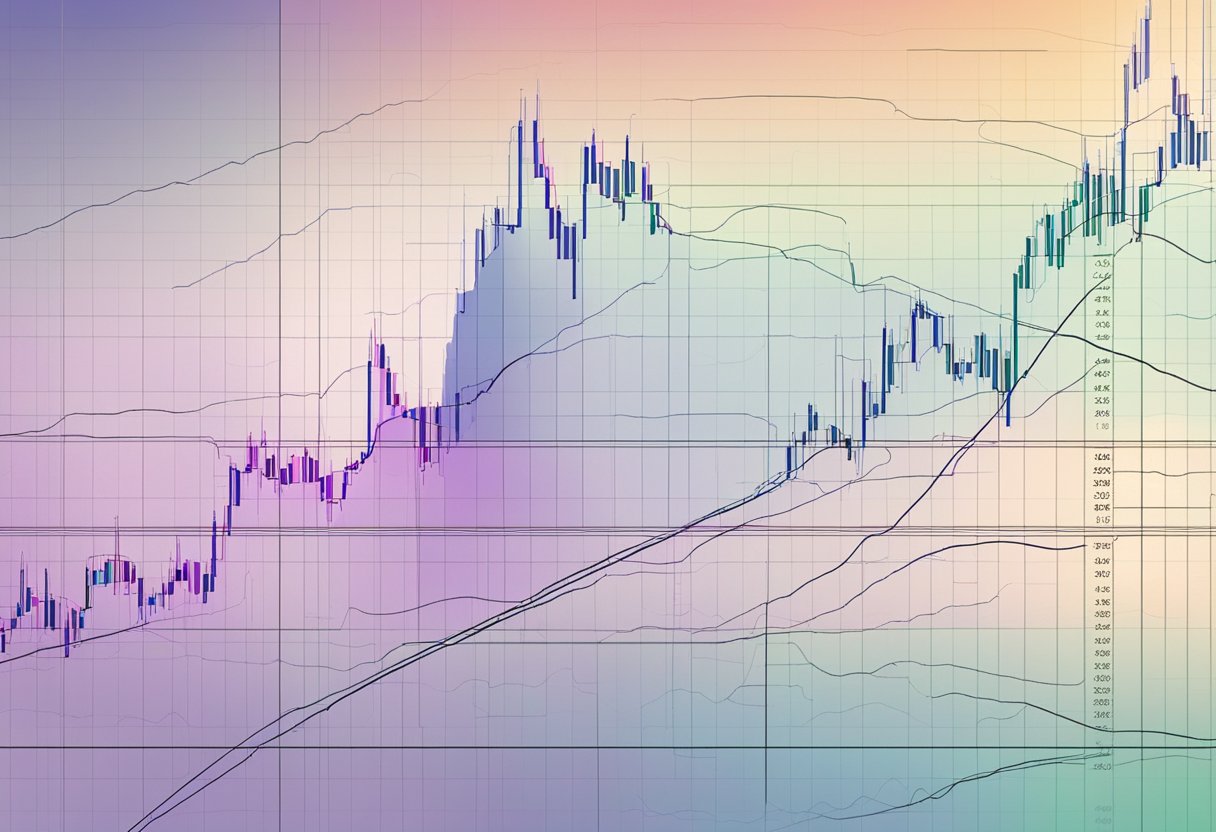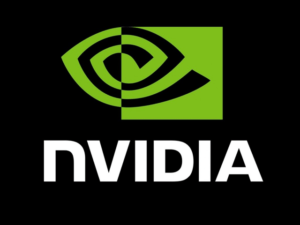Day trading futures contracts can be a profitable way to invest in the financial markets. However, choosing the right futures contract can be a daunting task for beginner traders. In this article “How to Choose the Right Futures Contracts for Day Trading” one should consider factors such as volume, margin, and movement. Trading contracts that typically trade more than 300,000 contracts in a day in terms of volume allows traders to buy and sell at the levels they want and assures them that other traders are trading with them.
Understanding futures contracts is an important aspect of day trading. Futures contracts are agreements to buy or sell an underlying asset at a predetermined price and date in the future. There are different types of futures contracts, including stock index futures, commodity futures, and currency futures. Each futures contract has its own unique characteristics, such as contract size, tick size, and margin requirements. Traders need to understand the different types of futures contracts and their characteristics to choose the right contract for day trading.
Key Takeaways
- Understanding the different types of futures contracts is crucial for day trading.
- Traders should consider factors such as volume, margin, and movement when choosing a futures contract for day trading.
- Practicing with demo accounts and choosing the right futures broker can help traders improve their day trading skills.
Understanding Futures Contracts
https://www.youtube.com/watch?v=HnzzJ20lLVE&embed=true
Futures contracts are agreements between two parties to buy or sell an underlying asset at a predetermined price and date in the future. Futures contracts are standardized, exchange-traded contracts that allow traders to take positions on the future price movements of the underlying asset.
The underlying asset can be a commodity, currency, stock index, or interest rate. The futures contract specifies the quantity and quality of the underlying asset, the delivery date, and the delivery location.
There are two types of futures contracts: physical delivery and cash settlement. Physical delivery contracts require the delivery of the underlying asset at the expiration of the contract. Cash settlement contracts are settled in cash at the expiration of the contract.
Futures contracts are used for hedging and speculation. Hedgers use futures contracts to protect against price movements of the underlying asset. For example, a farmer may sell a futures contract to lock in a price for his crop before it is harvested.
Speculators use futures contracts to profit from price movements of the underlying asset. They take long positions if they expect the price to rise and short positions if they expect the price to fall.
When choosing the right futures contract for day trading, traders should consider the liquidity, volatility, and margin requirements of the contract. Liquidity refers to the ease of buying and selling the contract. Contracts with high trading volume and open interest are more liquid and easier to trade.
Volatility refers to the price movements of the underlying asset. Contracts with high volatility offer more trading opportunities but also carry more risk.
Margin requirements refer to the amount of money required to open a position in the contract. Contracts with higher margin requirements may require more capital to trade.
Understanding futures contracts is essential for day traders to make informed decisions on which contracts to trade. By considering the liquidity, volatility, and margin requirements of the contract, traders can choose the right futures contract for their trading strategy.
Types of Futures Contracts

Futures contracts are agreements to buy or sell an underlying asset at a predetermined price and date in the future. There are various types of futures contracts that traders can choose from, each with its own unique characteristics and risks. In this section, we will explore the three main categories of futures contracts: commodity futures, financial futures, and cryptocurrency futures.
Commodity Futures
Commodity futures are contracts that involve physical commodities, such as oil, soybeans, wheat, corn, gold, natural gas, and livestock. These contracts are popular among traders who want to speculate on the price movements of these commodities or hedge against potential price fluctuations. Commodity futures are often used by farmers, miners, and other producers to lock in a price for their products.
Financial Futures
Financial futures are contracts that involve financial instruments, such as the S&P 500, currencies, interest rates, and stock indices. These contracts allow traders to speculate on the price movements of these instruments or hedge against potential risks. Financial futures are popular among institutional investors, such as banks and hedge funds, as well as individual traders.
Cryptocurrency Futures
Cryptocurrency futures are contracts that involve digital currencies, such as Bitcoin, Ethereum, and Litecoin. These contracts allow traders to speculate on the price movements of these currencies or hedge against potential risks. Cryptocurrency futures are popular among traders who want to gain exposure to the cryptocurrency market without owning the underlying assets.
Overall, traders should choose futures contracts that align with their trading strategies and risk tolerance. It is important to do thorough research and analysis before entering into any futures contract to minimize potential losses.
Role of Exchanges in Futures Trading
Futures trading takes place on exchanges, which are regulated marketplaces where buyers and sellers can trade standardized futures contracts. These exchanges provide a platform for traders to buy or sell futures contracts, and they play an important role in ensuring the transparency and efficiency of the futures market.
Exchanges provide a centralized marketplace for futures trading, and they serve as intermediaries between buyers and sellers. They provide a platform for traders to buy or sell futures contracts, and they ensure that all transactions are executed in a fair and transparent manner.
There are several futures exchanges around the world, including the Chicago Mercantile Exchange (CME), the New York Mercantile Exchange (NYMEX), and the Intercontinental Exchange (ICE). Each exchange has its own set of rules and regulations, and they offer different types of futures contracts.
Trading on exchanges is done through trading platforms, which are software applications that allow traders to place orders and manage their trades. These platforms provide real-time market data, and they allow traders to monitor their positions and make informed trading decisions.
Exchanges also play an important role in ensuring the integrity of the futures market. They monitor trading activity and investigate any instances of market manipulation or other fraudulent behavior. They also provide a mechanism for settling disputes between traders.
In summary, exchanges play a critical role in the futures market by providing a centralized marketplace for trading, ensuring transparency and efficiency, and maintaining the integrity of the market. Traders should choose an exchange that offers the futures contracts they are interested in trading, and they should use a reputable futures trading platform to execute their trades.
Key Considerations for How to Choose the Right Futures Contracts for Day Trading
https://www.youtube.com/watch?v=i70F0cwIDTs&embed=true
When it comes to day trading futures, there are several key considerations that traders must keep in mind. Understanding these factors can help traders choose the right futures contract and manage their risk effectively. In this section, we will discuss the most important considerations for day trading futures.
Understanding Volume and Volatility
One of the most important factors to consider when day trading futures is volume and volatility. Traders should look for futures contracts that have high trading volumes and high levels of volatility. This is because these contracts tend to have more price fluctuations, which can provide opportunities for day traders to profit.
Assessing Risk Tolerance
Another important consideration for day trading futures is risk tolerance. Day traders should have a clear understanding of their risk tolerance and potential losses before they start trading. Risk management is a crucial aspect of day trading futures, and traders should have a solid plan in place to manage their risk effectively.
Capital and Margin Requirements
Day traders should also consider their capital and margin requirements when choosing a futures contract. Margin requirements can vary widely between contracts, and traders should ensure that they have enough capital to meet these requirements. It’s also important to note that day trading margin requirements are typically higher than those for longer-term positions.
Choosing the Right Futures Contract
Finally, traders should choose the right futures contract for their trading strategy. This involves considering factors such as the contract’s point value, movement and spread. Traders should also consider the contract’s past performance and its correlation with other asset classes. Diversification is an important aspect of risk management, and traders should consider trading multiple futures contracts to spread their risk.
In summary, day traders should carefully consider volume, volatility, risk tolerance, capital and margin requirements, and the specific details of the futures contract when selecting a contract to trade. By doing so, they can increase their chances of success and manage their risk effectively.
Choosing a Futures Broker
https://www.youtube.com/watch?v=CawzMuADjBA&embed=true
Choosing the right futures broker is a crucial step toward successful day trading. A futures broker is an intermediary between the trader and the exchange. They execute trades on behalf of the trader and provide access to the exchange’s trading platform. Here are some factors to consider when choosing a futures broker:
Commission Structure
The commission is the fee charged by the broker for executing trades. Different brokers have different commission structures, which can significantly affect the profitability of the trader. Some brokers charge a flat fee per trade, while others charge a percentage of the trade’s value. It is important to compare commission rates across different brokers and choose one that offers a competitive commission structure.
Execution Quality
Execution quality refers to the speed and reliability of trade execution. A good futures broker should provide fast and reliable trade execution, with minimal slippage and rejections. Slippage occurs when the trade is executed at a different price than the one requested by the trader, while rejections occur when the trade is not executed due to technical issues. To ensure good execution quality, traders should choose a broker with a robust trading platform and a reliable network infrastructure.
Customer Service
Customer service is an essential aspect of any trading service. A good futures broker should provide excellent customer service, with prompt and helpful responses to any queries or concerns. Traders should choose a broker that offers multiple channels of communication, such as phone, email, and live chat, and has a knowledgeable and responsive support team.
In summary, choosing the right futures broker is critical for successful day trading. Traders should compare commission structures, execution quality, and customer service across different brokers and choose one that meets their trading needs.
Practice Trading with Demo Accounts
https://www.youtube.com/watch?v=BZWP7gwtSaE&embed=true
One of the best ways to learn how to day trade futures contracts is by practicing with demo accounts. Demo accounts, also known as paper trading accounts, allow traders to simulate real trading scenarios without risking real money. This is a great way to get a feel for the market and develop strategies before putting any capital at risk.
Demo accounts are offered by most futures brokers and are typically free to use. They are designed to mimic real trading accounts, with real-time market data and order entry capabilities. Traders can use demo accounts to test out different trading strategies, learn how to use trading platforms, and get a feel for the market without risking any real capital.
Using a demo account is a great way to practice and refine trading strategies. Traders can experiment with different approaches and see how they would have performed in real market conditions. They can also test out different risk management techniques and see how they would have impacted their bottom line.
Demo accounts are also a great way to learn how to use trading platforms. Most futures brokers offer their own proprietary trading platforms, which can take some time to learn. By using a demo account, traders can get familiar with the platform’s features and functionality without risking any real money.
Overall, practicing with demo accounts is an essential step for any trader looking to day trade futures contracts. It allows them to gain experience and confidence without risking real capital, and it can help them develop and refine their trading strategies.
I use TradingView as my platform which I wrote about in the article below:
Final Thoughts on How to Choose the Right Futures Contracts for Day Trading
Day trading futures can be a lucrative venture for disciplined and experienced traders. However, it is important to note that futures trading is different from trading securities, stocks, options, or other financial instruments.
When choosing the right futures contracts for day trading, traders should consider factors such as volume, margins, and movement. It is recommended to trade contracts that typically trade more than 300,000 contracts in a day in terms of volume. This volume allows traders to buy and sell at the levels they want and assures them that other traders are trading with them.
In terms of margins, the lowest margins are almost always those for day trading. Therefore, traders should choose futures contracts that have lower margins to minimize risk and maximize profits.
It is also important to note that futures contracts settle differently than other securities. Futures contracts have a set settlement date, which is the date when the contract is settled and the underlying asset is delivered or cash is exchanged. Traders should be aware of the settlement date when choosing futures contracts to trade.
Futures trading can be a useful tool to speculate on the price movements of various assets, including energy, ETFs, and more. However, traders should always do their due diligence and research before making any trades. It is important to have a well-diversified portfolio and to not rely solely on futures trading for profits.
In conclusion, day trading futures can be a profitable venture for experienced and disciplined traders. By choosing the right futures contracts based on volume, margins, and movement, traders can minimize risk and maximize profits. However, traders should always do their research and not rely solely on futures trading for profits. Hopefully this article, “How to Choose the Right Futures Contracts for Day Trading” has given you a solid starting point and information for the futures markets.
Frequently Asked Questions
https://www.youtube.com/watch?v=sJELO5PGY00&embed=true
What are the factors to consider when choosing a futures contract for day trading?
When choosing a futures contract for day trading, there are three main factors to consider: volume, margins, and movement. High volume contracts are preferred because they allow traders to buy and sell at the levels they want and ensure that other traders are trading with them. Margins are important because they determine the amount of money required to open a position in a particular futures contract. Finally, movement is important because it determines the potential profit or loss of a trade.
How do I determine the liquidity of a futures contract?
Liquidity is an important factor to consider when choosing a futures contract for day trading. To determine the liquidity of a futures contract, traders should look at the trading volume and open interest. Trading volume refers to the number of contracts traded in a particular futures contract, while open interest refers to the total number of outstanding contracts in a particular futures contract. High trading volume and open interest indicate that a futures contract is highly liquid.
What are the risks involved in day trading futures?
Day trading futures involves several risks, including market risk, leverage risk, and execution risk. Market risk refers to the risk of losses due to changes in the price of the underlying asset. Leverage risk refers to the risk of losses due to the use of leverage, which amplifies both gains and losses. Execution risk refers to the risk of losses due to delays or errors in executing trades.
What are some popular futures contracts for day trading?
Some popular futures contracts for day trading include E-mini S&P 500, E-mini Nasdaq 100, and E-mini Dow Jones Industrial Average. These contracts are highly liquid and offer traders the opportunity to trade a diversified portfolio of stocks in a single futures contract.
How do I choose a futures broker for day trading?
When choosing a futures broker for day trading, traders should consider several factors, including the broker’s commission rates, trading platform, customer support, and regulatory compliance. Commission rates vary among brokers, so traders should choose a broker that offers competitive rates. The trading platform should be user-friendly and offer advanced trading tools and features. Customer support should be available 24/7 to assist traders with any issues or questions. Finally, the broker should be regulated by a reputable regulatory agency to ensure the safety of traders’ funds.






